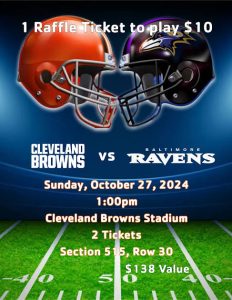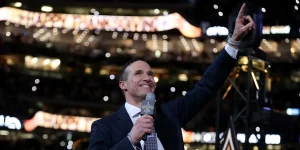
Three Reasons Deshaun Watson Didn’t Get An Indefinite Suspension
Deshaun Watson’s 11-game suspension was controversial at the time, leaving many unresolved concerns. Gary Gramling and Alex Prewitt of Sports Illustrated investigated what prompted the NFL to abandon its desire for an indefinite penalty.

The NFL was clear that Cleveland Browns quarterback Deshaun Watson would face an indefinite ban of at least one year for violating the personal conduct standard in connection with allegations of sexual assault and misconduct by at least two dozen people. That’s not what happened. Instead, Watson was given an 11-game suspension, which means he’ll make his Cleveland Browns debut against the Houston Texans.
There were numerous reports about why the league was willing to back down from their demands, some of which proved to be accurate. Gary Gramling and Alex Prewitt of Sports Illustrated have exclusive information on the NFLPA’s willingness to go to great measures, broadening the issue beyond Watson and focusing on the league’s widespread hypocrisy.
Jeffrey Kessler wrote a 13-page letter that outlined three major grounds of concern.
This was widely expected and rumored during Watson’s case and subsequent appeal. The NFLPA contended that the league was easy on owners, at times completely ignoring their conduct.
It was expected to shed light on a number of accusations leveled at Daniel Snyder, the current owner of the Washington Commanders. That was unlikely to be inflammatory given how much of it had already been made public as a consequence of investigations pushed by the Washington Post. Snyder might wind up selling the team.

Similarly, bringing up former Carolina Panthers owner Jerry Richardson would not have been particularly convincing because he is no longer in the league. However, the actions of both Robert Kraft of the New England Patriots and Jerry Jones of the Dallas Cowboys posed a real threat.
This report may raise some concerns about those owners and situations, but it isn’t as destructive as if the NFLPA paraded this on a daily basis, making it a regular news issue and posing an implicit threat.
The NFLPA promised to use the treatment of many charges of forcible rape by former Pittsburgh Steelers quarterback Ben Roethlisberger as an example of racial bias, even comparing the seriousness of complaints against the two quarterbacks.
Part of the problem for the league was that only four women filed charges against Watson with Sue Robinson, a retired federal judge chosen to be the league’s arbitrator in this matter. There were four accusers out of a total of 28 at the time.
Meanwhile, Roethlisberger faced two claims of forcible rape brought before the league. The NFLPA vowed to compare and contrast four allegations of sexual assault and misconduct with two incidents of forced rape. Roethlisberger was punished for four games, down from six. Neither quarterback was charged with any of the alleged instances.
The NFLPA was prepared to claim that the league’s commissioner had already decided to ignore Robinson’s advice, with the purpose of raising the punishment if she did not reach the desired conclusion.
The players intended to restrict Goodell’s involvement in such decisions. Some owners felt the same way. Pressure on the NFL to penalize Watson harshly in order to avoid negative publicity may have caused Goodell to be overly transparent about his intentions, undercutting the procedure that had only recently been agreed upon in the collective bargaining agreement.
Yes, Goodell has the right to judge in the event of an appeal, but there was a feeling that he had established his
There is no right answer here. Watson’s sentence is still being challenged. He was not charged with offenses that would be difficult to prove even under ideal conditions. Meanwhile, the league’s record on these matters is shameful. There is also a difference in how owners’ offenses are treated vs players’.
Maybe Watson’s defense was not the finest case for making these arguments, but they were nonetheless significant. Unfortunately, there is no clear indication of how this situation will be resolved moving forward. The NFL attempted to persuade people that they wanted to punish Watson more harshly, but they also gain from having him return sooner since his talent can better the league, sell tickets, increase ratings,







